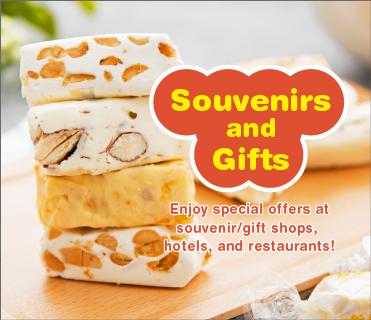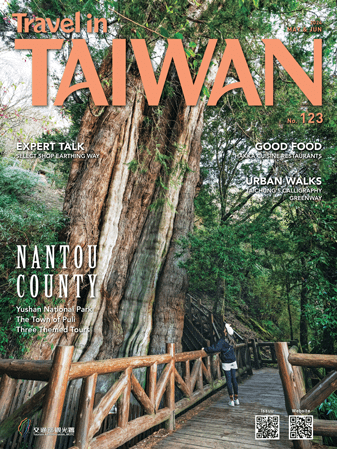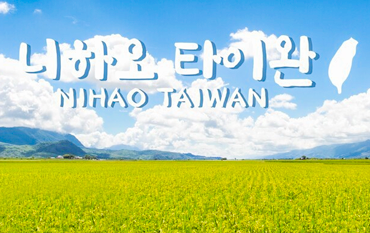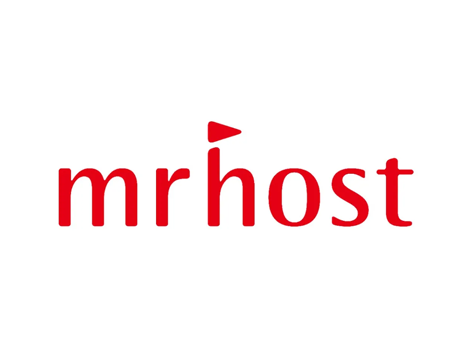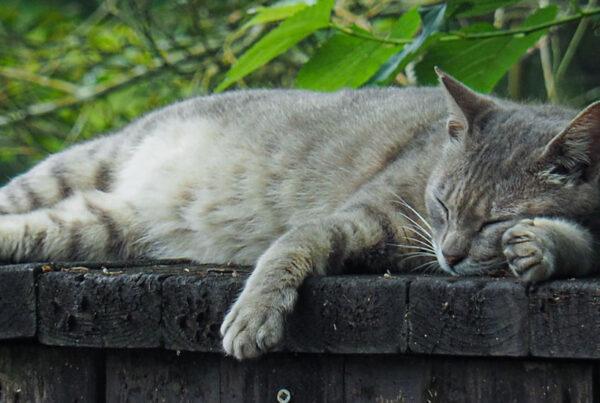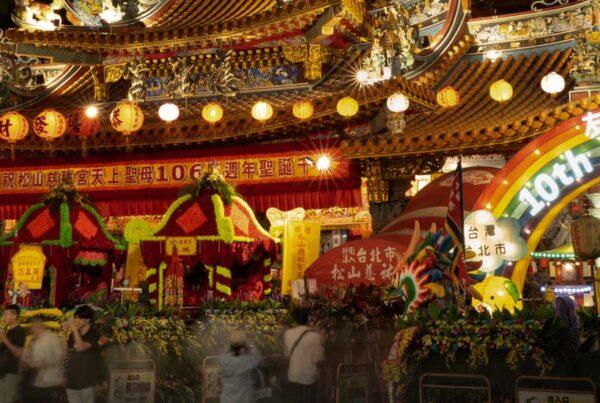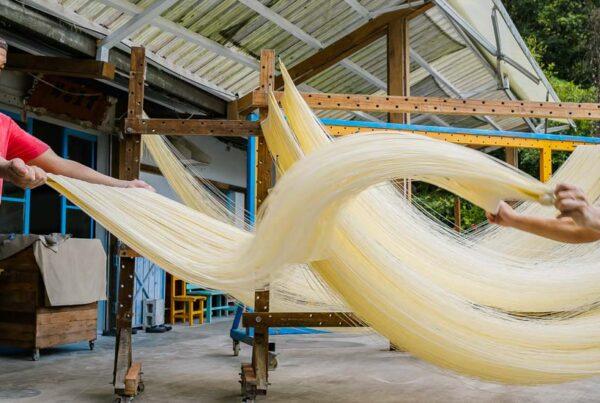Meet Herbalists Hoping to Inject Vitality into an Aging Industry
TEXT / AMI BARNES
PHOTOS / RAY CHANG
Taiwan’s healthcare service ranks among the best in the world, with hospitals offering technologically advanced treatments and affordable medicine to the population. Alongside this, many residents still find value in a range of traditional Chinese-medicine practices. This article brings you into the fragrant interior of one herbal-medicine business that is working on new ways of staying relevant.
In today’s Taiwan, it’s hard to imagine that when Wu Ying-chou founded the Deng Yi Chinese Medicine Store just under four decades ago, Taiwan’s much-vaunted National Health Insurance (NHI) did not yet exist. While Western medicine had been widely available for many decades already, it was often pricey, and large numbers of residents turned to herbal medicine (one facet of the broader category of traditional Chinese medicine) as an affordable alternative. In fact, the shop in New Taipei City’s Xinzhuang District (Deng Yi is now a small chain) opened its doors close to peak herbal-medicine saturation in Taiwan, when it was just one of an estimated 15,000 such stores throughout the island – for context, that’s more than the roughly 13,000 convenience stores there are today.
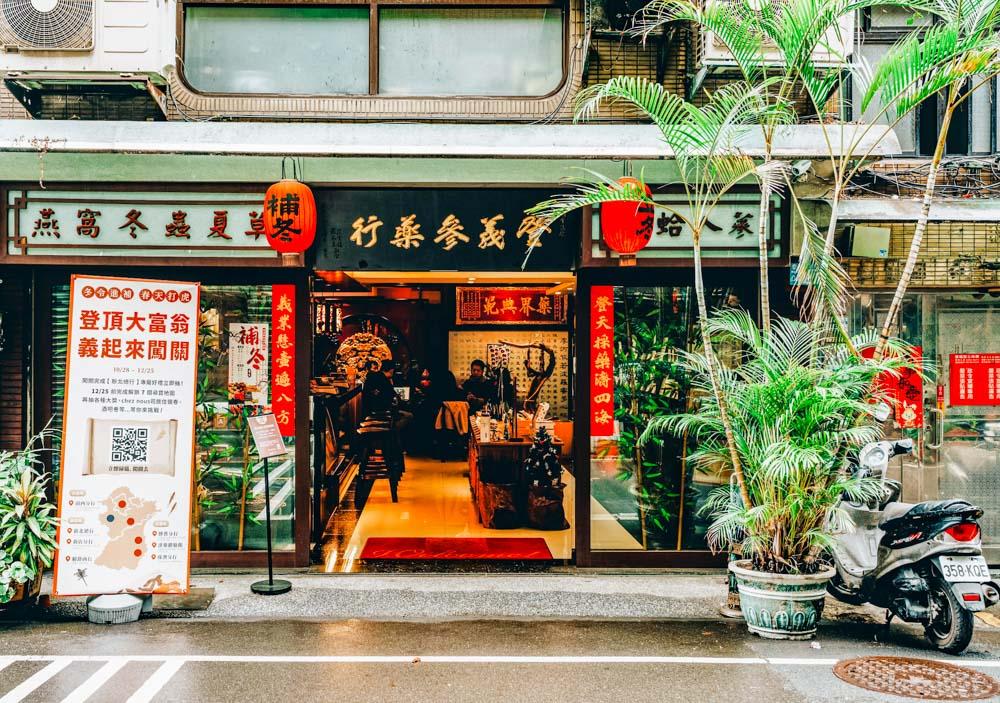
Over the intervening years, a number of factors put pressure on purveyors of herbal remedies. The industry’s popularity prompted increased oversight and more exacting regulations. Then, with the NHI rollout in 1995, swift-acting, efficient, and symptom-targeting Western medicines became readily available at prices that put them within the reach of almost everyone. Gradually, herbal medicine became the preserve of older generations – with everyone from those harvesting the ingredients to the experts who prepared them and the regulars who came back for repeat prescriptions rapidly gaining gray hairs. The industry went into decline, and these days you can only find around 8,000 stores still doling out aromatic herbal packets.

Despite this, Wu Lung – the older of the two second-generation brothers at the helm of modern-day Deng Yi – is upbeat. He says recent years have heralded a reversal in this contraction. Indeed, this claim is backed up by official statistics showing that younger people, particularly women, are increasingly coming to view herbal medicine and other branches of traditional Chinese medicine as complementary and preventative tools in their healthcare arsenal.


Lung and his brother Wu Chen didn’t grow up expecting to step into their parents’ shoes and were never strong-armed into taking on the responsibility of running Deng Yi. Both spent time working outside the industry, and this distance has allowed them to develop their own interests and skill sets. Lung is a self-professed neophile with a counter-curiosity for history and the vagaries of how old and new coexist. Evidence of these passions can be seen in how Deng Yi has gradually reinvented itself since he returned to the fold. Keeping one foot planted in the industry’s heritage, he has sought to align the company with modern sensibilities – in terms of the products on offer, methods of customer engagement, and the overall branding and feel of its stores.
First impressions are all spice-scented air, dark wood, and tightly packed jars of dry produce

Deng Yi’s stores themselves provide illustration of this balancing act between nostalgia and innovation. The business now has a total of five locations spread across greater Taipei and Yilan County, including the original Xinzhuang store, one inside the Eslite Spectrum Nanxi mall (near MRT Zhongshan Station, Taipei City), one inside the Yes! Life mall (near MRT Qizhang Station, New Taipei City), one inside the National Center for Traditional Arts (www.ncfta.gov.tw), and another in the Su’ao Service Area (National Freeway No. 5), the last two in Yilan County – not exactly the kind of places you’d expect to find herbal-medicine stores. Contrastingly, they maintain many of the typical furnishings seen in such places; first impressions are all spice-scented air, dark wood, and tightly packed jars of dry produce. In Xinzhuang, an abacus sits on the shelf behind the counter, and in another branch you can see an eighty-year-old medicine cabinet – each ingredient delicately labeled with fine calligraphy-brush strokes. A peak into the kitchen-cum-laboratory at each location, however, reveals a far more modern operation. Back here, gleaming stainless-steel appliances grind, dry, or decoct ingredients and prescriptions are put into easy-to-use sachets.

During a recent Travel in Taiwan visit, we saw boxes full of prescription decoctions waiting to be shipped out and watched staff deftly assemble neat piles of dry herbs into pouches to be consumed daily to assist with health goals like weight management or recovering from childbirth. In addition to these prescribed treatments, Deng Yi also offers plenty of off-the-shelf products that are intended to match the current understanding of herbal medicine as preventative aid rather than cure. For example, you could walk into the store and let them know that you’re planning a hot-pot dinner or want to braise a particular cut of meat, and the staff can assist you in selecting a suitable herbal base for your meal. Similarly, the store offers different teabag series (both hot brews using exclusively herbs, and cold brews using both herbs and dried fruit) that offer an easy way of bringing traditional culture into present-day lives. The store’s quarterly magazine (Chinese) – with its recipes and in-depth features on individual ingredients – also does a good job of showcasing how herbal medicine is very much alive in the seasonal recipes that everyone in Taiwan knows and loves.
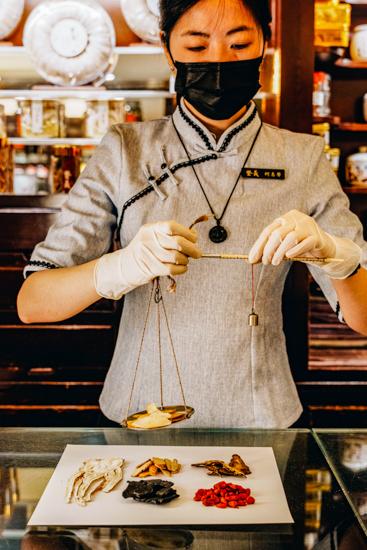
Younger brother Chen has also had his part to play in Deng Yi’s modernization. For the first eight years of his professional life, he worked in the local tourism industry, and this experience has undoubtedly informed choices like opening their second branch in Yilan’s National Center for Traditional Arts – a kind of living-history village that preserves and promotes Taiwan’s intangible cultural assets such as traditional performance styles, crafts, and trades.
One of the activities offered involves creating your own fragrant map of Taiwan fashioned from herbs of your choosing
Chen becomes especially enthused when discussing the experiential activities open to guests who visit the store’s second-floor workshop. Visitors can have a go at throwing together their own herbal teabags or medicinal compresses. And if you’re not sold on the idea of herbal medicine, you don’t need to feel left out. One of the other activities offered involves creating your own fragrant map of Taiwan fashioned from herbs of your choosing. According to Chen, these experiences are equally popular with both locals and foreign tourists, with the only difference being that foreigners from countries without a culture of herbal medicine tend to get a lot more nasally curious, wanting to smell each and every item they encounter. This was an observation I felt rather called out by!
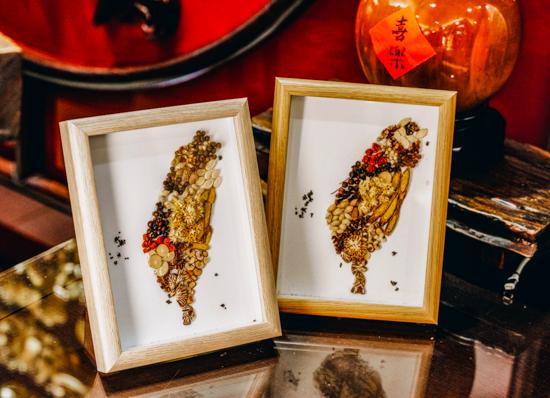
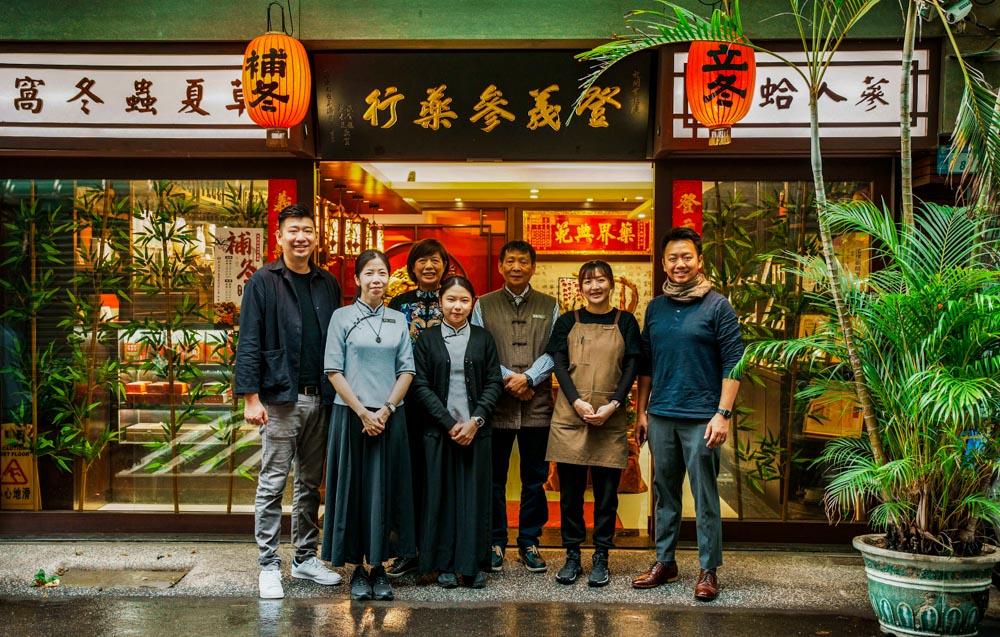
The brothers hope that their reimagining of herbal medicine as a tradition fit for the modern age will enable Deng Yi to persevere. Their father, who listened to our conversation without interruption, had a serene smile on his face – it’s clear he is quietly confident they’re on the right track.
Deng Yi Chinese Medicine Store
(登義中藥行)
Add: No. 8, Lane 59, Jianfu Rd., Xinzhuang District, New Taipei City
(新北市新莊區建福路59巷8號)
Tel: (02) 2202-1658
Website: www.dengyi1985.com (Chinese)
Google Map:
About the author



